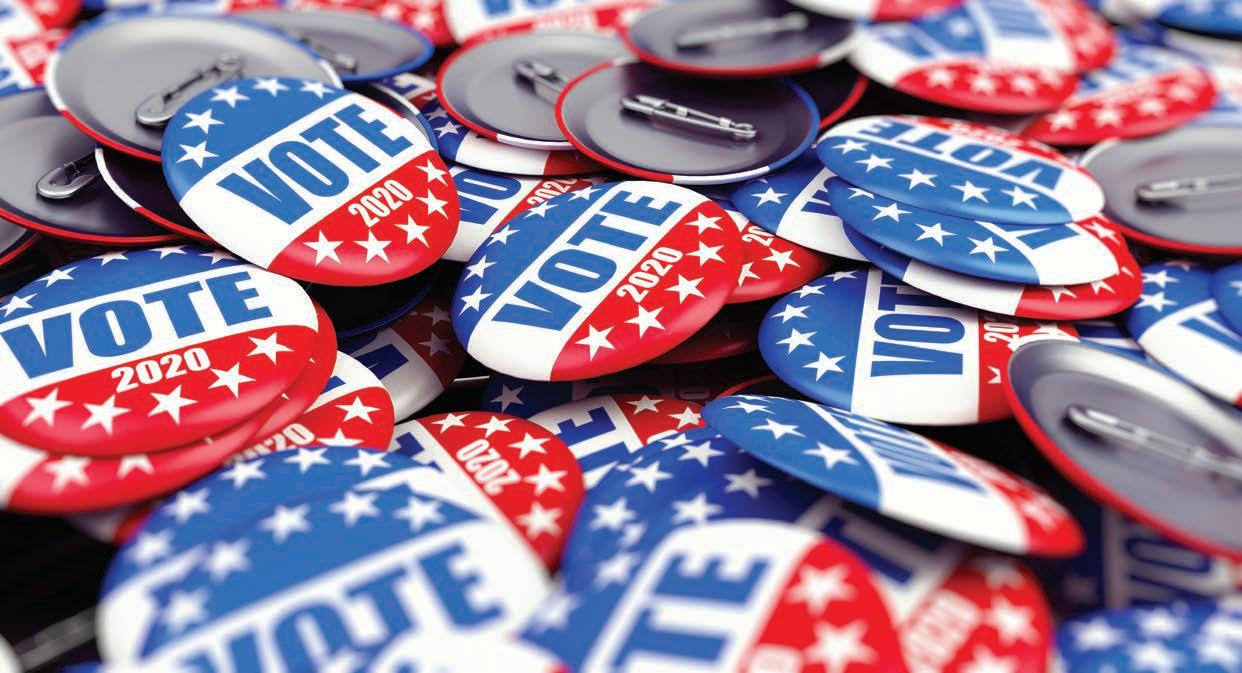
3 minute read
Ensuring Equal Access and Opportunity for Deaf and Hard of Hearing Americans
these events, such as, but not limited to, captioned videos, sign language or tactile interpreting, Communications Access Real-time Translation (CART) services, and assistive listening systems. We also requested that each campaign’s political advertisements on TV and the Internet include accurate captions. These policy recommendations focus on addressing the human and civil rights of approximately 48 million deaf, hard of hearing, late-deafened, DeafBlind, and deaf-mobile disabled people across a broad spectrum of areas: • Promoting civil rights through legislative, administrative, and enforcement actions. • Improving the quality of education and related services, and ensuring appropriate transition services.
• Increasing employment opportunities through new initiatives and the provision of reasonable accommodations in the workplace. • Ensuring effective early intervention systems; access to health care, including substance abuse and mental health care; and insurance coverage for hearing health care, including hearing aids, other assistive technology, and comprehensive rehabilitative services.
Advertisement
• Increasing the availability of safe and accessible housing. • Providing equal access to telecommunications, information services and video programming, realizing the potential of broadband services, and enabling public safety improvements through accessible emergency communications. • Ensuring accessible transportation information, services, and facilities. We shared recommendations in regard to civil rights protection and enforcement, education, employment, health care, housing, telecommunications, information services, video programming, and transportation. We were pleased to see several campaigns release disability platforms that incorporated some of the tenets laid out in our recommendations and hope to see such platforms become the norm in future election cycles.
Zainab Alkebsi is the NAD’s Policy Counsel and also chairs DHHCAN.
The following organizations worked together on the proposal for equal access and opportunity for DHHCAN: American Association of the DeafBlind
American Deafness and Rehabilitation Association
Association of Late-Deafened Adults
Cerebral Palsy and Deaf Organization Communication Service for the Deaf
Conference of Educational Administrators of Schools and Programs for the Deaf Deaf and Hard of Hearing Consumer Advocacy Network Deaf Seniors of America
Gallaudet University Alumni Association Hearing Loss Association of America National Association of the Deaf
National Association of State Agencies of the Deaf and Hard of Hearing North Virginia Resource Center for Deaf and Hard of Hearing Persons Registry of Interpreters for the Deaf Telecommunications for the Deaf and Hard of Hearing, Inc.
Collective Deaf Voting Power: Organizing and Educating in ASL
BY KRISTON LEE PUMPHREY
Deaf people care about politics. We don’t always have access to information about our choices. Most politicians and media outlets don’t prioritize access. The less we understand policy discussions, the less informed we become. Thomas Jefferson once said that ignorance is a threat to true democracy.
The media is supposed to help people understand current events. Despite their best efforts, the news can be hard for the deaf community to follow. Real-time captioning services are often inaccurate or delayed. Those who are hard of hearing or have a firm grasp of English may struggle less, although it’s frustrating for people who are not as fluent in English. Or those with vision impairments and other disabilities. So, where can we find information that will help us vote more wisely? Using digital media, the deaf community creates content in ASL—such as the Daily Moth and Sign1News. Social media provides spaces for sharing and discussing information. Nonpartisan organizations serving the disability community have also been supportive. The American Association for People with Disabilities (AAPD) started online campaigns. #RevUp (AAPD) to talk about access and voting.
The platforms mentioned above are independent and cater to their respective followers. SignVote.org aims to change that. The website consolidates election 2020 content and resources in one place, making it easier to find. SignVote’s coalition of partners are nonpartisan organizations serving the deaf, DeafBlind, DeafDisabled, Hard of Hearing, and late-deafened communities. These partnerships help foster more conversations within the community.







